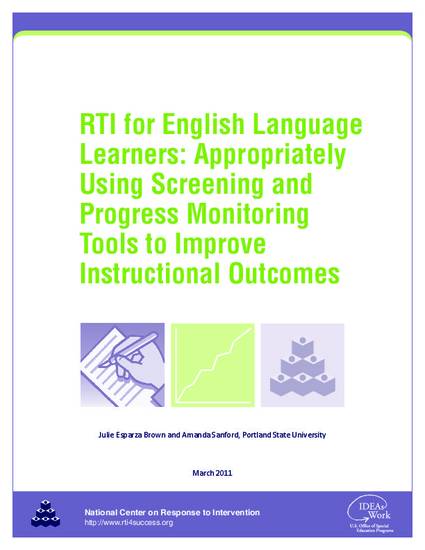
- English language -- Study and teaching -- Spanish speakers,
- Literacy -- Study and teaching,
- Language and languages -- Study and teaching -- Foreign speakers,
- Language and languages -- Study and teaching -- Methodology
This brief provides a framework for using Response to Intervention (RTI) with students who are English Language Learners (ELL) from Hispanic backgrounds. The first section examines the characteristics of these students; defines the RTI process; and then models how students? linguistic, cultural, and experiential backgrounds can guide appropriate screening, progress monitoring, and goal setting that will help promote English literacy. Although the majority of ELLs in the United States are Hispanic and come from Spanish-speaking homes, students classified as ELL speak more than 350 languages (Ethnologue, 2009). This brief provides an example of the RTI framework for a student whose native language is Spanish; however, the same framework may be applied with all ELLs, taking into account other culturespecific factors. Teachers will find it helpful to learn more about their students? native languages to understand the specific challenges they will face based on the similarities and differences between their native language (L1) and English (L2). Finally, this brief discusses the crucial need for systems-level changes to ensure educational equity for ELLs and other diverse student groups.
